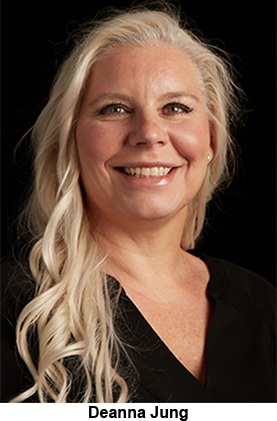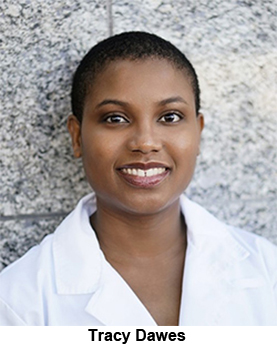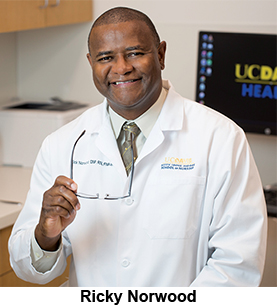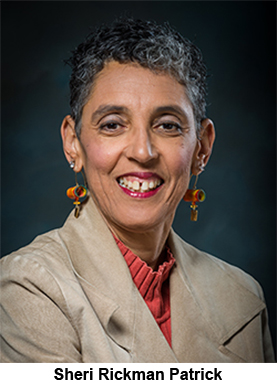Nurse Practitioners on the Front Lines of the Fight for Social Justice and Health Equity
By Dorsey Griffith
Contributing Writer
The videotaped execution of George Floyd, a Black man, by a white police officer in Minneapolis at a time when COVID-19 was laying bare pervasive health disparities among people of color has pushed the realities of systemic racism in the U.S. to the forefront of the national discourse.
But these issues are not new for many California nurse practitioners who have consciously worked throughout their careers to address these inequities by dedicating themselves to care for the most vulnerable among us, whether or not they have insurance, a formal education, English language skills, legal status or criminal history. What they share is a fundamental capacity and determination to empathize with their patients and to treat each of them with compassion and respect.
Meet nurse practitioners Deanna Jung, Ricky Norwood, Tracy Dawes, and Sheri Rickman Patrick.

Deanna Jung, DNP, APRN, AGACNP-BC, ACCNS-AG, FNP, ENP
As a provider at an urgent care clinic in South Los Angeles County serving a multitude of vulnerable populations, Jung’s day might include reattaching a severed fingertip, pulling a small toy from a child’s nasal passages, teaching a newly diagnosed diabetic how to monitor her blood sugar, or as on a recent day, probing the deep well of despair of a man who had just been arrested and was heading back to jail after trying to make a fresh start.
“I feel in my heart this is where I was meant to be,” she said of her job. “It’s where I can make a difference in the lives I serve.”
The clinic contracts with area police stations, so among Jung’s patients are recently arrested men and women with everything from minor lacerations to chest pain who need treatment before being transported to jail. They are led into the clinic by the arresting officer through a back door for their privacy and to support their dignity.
On this day, her patient was frustrated and visibly upset, as she tries, mostly without success, to get his history. Finally, as she is sitting with him, she stops and drops her pad and pen and says:
“You sound angry. What is bothering you?”
The man told Jung that he had recently been released from prison after serving a 20-year sentence but could not find a job. An old acquaintance offered him money to help him move furniture, but the patient, attempting to rebuild and begin his life outside of the broken system, unwittingly was arrested during a raid. He was reeling with anguish.
Jung talked to him about the kinds of resources available – both for emotional support but also for getting back on his feet when the time came. The police officer then offered the patient his own wisdom about the house where the man had been moving furniture – as it was, unfortunately, a known haven for criminal activities frequently raided by police. The man said he was grateful Jung spoke to him as a person, not a guy who’d just been arrested.
“When you see you have made an impact on someone’s life, even for a minute, it’s all worth it,” Jung said. “It’s time well spent as everyone deserves the best health care possible no matter their circumstance.”

Tracy Dawes, DrPH, MSN, FNP, PHN
Tracy Dawes does not tiptoe around what she says are the nation’s health care shortcomings.
“We are the richest country in the world, but we have some of the poorest outcomes,” said Dawes, a Jamaican immigrant. “Health care cannot be a business. Health care is a human right. Your zip code, the color of your skin, or where you born should not determine your health outcomes.”
Driven by her belief that taking the profit out of the equation is the solution and that “every church should be a clinic and a school,” Dawes created a free, church-based clinic in a community in dire need of health care services, among other supports.
A Seventh-day Adventist, she linked up with a Seventh-day Adventist church pastor in the small city of Perris in Riverside County. In the church’s sabbath schoolroom, she set up Well-One Health. A nursing professor at National University, Dawes is “the chief cook and bottle washer” at Well-One Health, providing care with a nurse practitioner and pre-licensure nursing students under a collaborative agreement with an emergency medicine physician who serves as the volunteer medical director. Well-One Health does not receive any federal or state funding and does not take insurance. Patients are never charged.
“As members of the church, my husband and I split our tithe; we send half to the church and the rest goes into the clinic so we can pay for labs and other tests for those who can’t afford them.”
The patients, she said, are almost 100% Hispanic, mostly female. They come with diabetes, hypertension, and other chronic illnesses that have gone far too long without medical attention. Many are undocumented, and most are uninsured.
“It’s some of the worst diabetes I have seen,” she said. “They are about to lose their kidneys and they cannot afford dialysis.”
And although Dawes cannot offer patients a medical home, she can take the time required to educate them on diet and exercise, help them with Medi-Cal paperwork so they can get coverage and needed specialty care, assist them in finding low-cost medications, and sometimes even send them home with groceries.
There are times she worries that what she provides “is just a BAND-AID on a gaping wound,” but she is undaunted, and dreams of health centers popping up in major churches in poor communities throughout the state.
“The reason I don’t give up is that these patients don’t give up.”

Ricky Norwood, DNP, MSN, MSBH, RN, FNP-BC
As a young boy growing up in rural Mississippi, Ricky Norwood knew what it was like to go without health care.
“My Mama and Daddy had no insurance. When we got sick, we went to Grandma’s house. She’d say, ‘Lay down over there, drink this water and eat a biscuit, and you’ll feel better.’ Health care for us was hope.”
As a nurse practitioner in the Sacramento County Health Center, that memory is never far from his mind – or heart.
“I understand the trials and tribulations that people of color go through and the inequities out there and the stigma that folks have, and so I try to be a champion for them because times are hard and things are bad, and things can get worse if they do not address their health care needs.”
Of Norwood’s some 1,500 patients, 800 are undocumented with no insurance who are part of the county’s popular Healthy Partners program, which offers free primary care. Patients may wait up to three months to be seen.
Clinic appointments are so hard to get that clinic policy dictates that if a patient is more than 10 minutes late they are told to reschedule.
Norwood has his own policy: “If you are on my list for today, I don’t care how late you are, I will see you because I understand there are things going on. You could have childcare issues, transportation problems. It’s hard enough just to get to the clinic.”
That means he may be at the clinic an hour or two after closing time.
“I have to let my little light of kindness and compassion shine all the time,” he said, “because someone out there is depending on it.”

Sheri Rickman Patrick, NP, DNP, APRN, FNP-BC
When Sheri Rickman Patrick started practicing nursing in the 1980s nurses were expected to stand when a physician walked into the room. And while that humiliating tradition has ended, racist behavior and the slights that result from implicit bias practiced by fellow health care professionals have persisted. She recalls a bullying nursing supervisor who chided her for not saying “please” or “thank-you” when she called for assistance during an inpatient medical emergency and a fellow nurse who demanded to know her ethnicity.
What has made her resilient, she said, is the work she has always done taking care of underserved people, whether pregnant women who are also struggling with literacy, a lack of transportation or unemployment, or young adults without insurance who have not seen a doctor for 10 years. At the small Sacramento clinic where she now works, she has seen adults with everything from untreated diabetes to undiagnosed leukemia.
The challenges facing people of color have been around for generations, she said, and the disparities in health care and outcomes should come as no surprise.
“It's good people talking about it,” she said of the emerging awareness of systemic racism. “But unless you are going to do something, what is the point?”